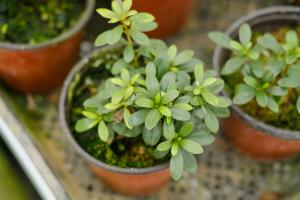Can I Plant a Willow Tree Near My House?
Many people consider planting trees near their homes as a way to enhance their curb appeal and improve the overall value of their property. While planting trees can be a great idea, selecting the right tree species and the appropriate planting location is crucial to prevent potential problems such as root invasion and property damage. One of the most popular trees for residential property owners is the willow tree, but can you plant it near your house? Let's find out.
The Pros of Planting a Willow Tree Near Your House
Willow trees are beautiful, and they have a unique and fascinating appearance. They are deciduous trees that can grow up to 80 feet tall in the right conditions. They have slender trunks and branches that offer a graceful appearance when they sway in the wind. Besides their beauty, planting a willow tree in your yard has many advantages, such as:
Willow trees can provide shade for you and your property, which can help you reduce your energy bills and keep your house cooler in hot weather.
Their roots are known to be strong, which means they can help stabilize soil in the area, reducing soil erosion and preserving the integrity of your property.
Willow trees are fast-growing trees, which means you can enjoy their full beauty in a relatively short period. You can also expect them to live for many years, so they are a great investment for your property.
The Cons of Planting a Willow Tree Near Your House
While willow trees are beautiful and provide many benefits, they also have some disadvantages that you should consider before planting one near your house. Some of the cons are:
Their roots can be invasive and can quickly burrow under your house's foundation, causing extensive damage to your property's structure.
Willow trees have weak wood, which means they can be vulnerable to pests and strong winds, and some of their branches can fall off without warning, posing a danger to your family, property, and neighbors.
They require a lot of water to thrive, which can increase your water bills significantly, and their roots can invade your plumbing and sewage systems, causing clogs and backups.
What Should You Consider Before Planting a Willow Tree Near Your House?
Before planting a willow tree near your house, you should consider several factors, such as:
The tree's mature size and its root system. Make sure you plant the tree at least three times its mature height away from your house's foundation.
Your local climate and soil conditions. Willow trees grow best in full sunlight and moist soil, so ensure your planting location has enough exposure to the sun and adequate drainage.
Your local zoning regulations. Some cities and towns have rules and guidelines about the types of trees you can plant near your house, so make sure to check with your local authorities and obtain necessary permits before planting.
Your personal preferences and goals. Consider why you want to plant a willow tree near your house and what you hope to achieve. If you are looking for a low-maintenance tree that does not require a lot of water, a willow tree may not be the best choice.
Conclusion
Can you plant a willow tree near your house? The answer is yes, but you should carefully consider the pros and cons we discussed in this article and take the necessary precautions to prevent any potential damage to your property. Contact a local arborist or landscaping expert if you need advice and guidance on the best tree species and planting locations for your property.

 how many times do yo...
how many times do yo... how many planted tre...
how many planted tre... how many pine trees ...
how many pine trees ... how many pecan trees...
how many pecan trees... how many plants comp...
how many plants comp... how many plants can ...
how many plants can ... how many plants and ...
how many plants and ... how many pepper plan...
how many pepper plan...































